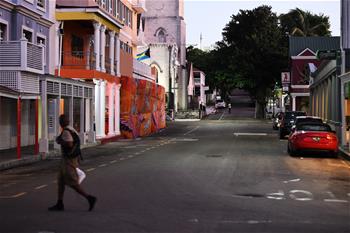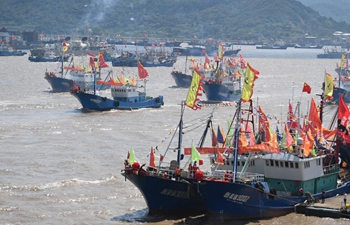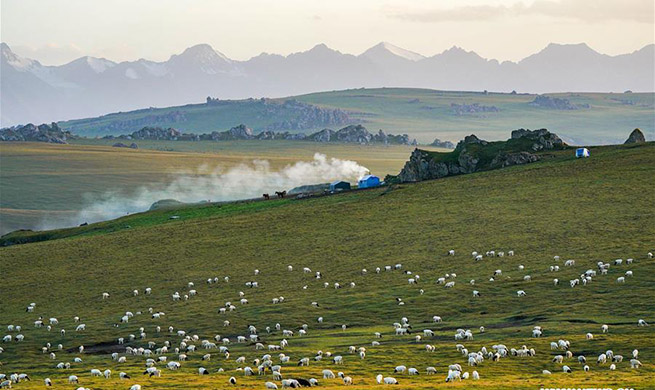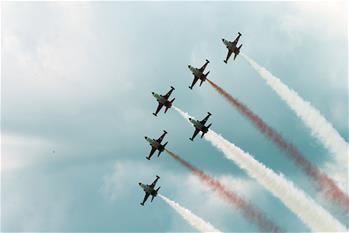OSLO, Sept. 17 (Xinhua) -- Norway on Monday saw the largest percentage of oil prices increase since the Gulf War in 1991, which could lead to more expensive airfares, public broadcaster NRK reported Tuesday.
An increase of almost 15 percent happened after some of Saudi Arabia's largest oil production facilities were attacked, which caused stop of over half of Saudi Arabia's oil production, the report said.
"This is, of course, hard for the airline industry. Fuel is one of the biggest cost items that the airlines have," Stein Nilsen, CEO of Norway's Wideroe Airlines, told NRK.
According to Nilsen, in case the trend continues during winter, this will be "a tough challenge for the entire airline industry", and it may lead to increased ticket prices across the industry in Europe.
Knut Morten Johansen, communication manager of Scandinavian Airlines, SAS, said that fluctuations in oil prices on day-to-day basis will not have any immediate effect.
"It is impossible to say anything about. But in general, this is a demanding industry. Margins are small and the industry is sensitive to currency and oil price fluctuations," he said.
According to Frode Steen, professor of economics at the Norwegian School of Economics (NHH), airlines still have a certain degree of security, by securing contracts up ahead, which ensures fuel at a given price.
"This primarily affects the part of the fuel consumption that is not purchased on contract. However, with sustained increases of prices, the next contract will also be affected. If the prices of fuel go up, then they must do something about it. The only thing to do then is to increase income level. And that can only be done by selling more expensive tickets," the professor explained.













